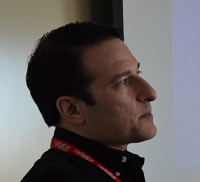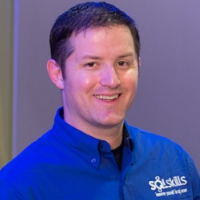I decided to start a series of blogs where I interview key people in the SQL Server community. Instead of me asking technical questions, I plan on asking about their outlook on the future, books they read (non-fiction and/or technical), and their overall thoughts on where technology (mainly SQL Server) is headed. You can find more interviews here.

Mohammad: Where do you see SQL Server technology evolving to 5 years from now? More cloud focused?
Kevin: A few distinct but interrelated evolutions are occurring simultaneously. First, Microsoft now cares most about owning the enterprise data center no matter whose technology was originally in there. So you’re going to see a lot more support from Microsoft in the area of open-source technologies that were previously anathema. You’ve already seen SQL Server on Linux, but why stop there? There’s considerable mindshare behind PostgreSQL, MySQL, etc. Microsoft wants to serve its customers on all of those platforms. Second, cloud is indisputably a “thing” to be reckoned with. If you’re a SQL Server DBA and you’re not catching up on cloud technologies, then you’re definitely falling behind. And don’t forget, in the cloud, poorly performing SQL code and applications cost the company money. So you’d be well served to start learning as much as you can about tuning SQL Servers. Third, the data science disciplines are a “thing” as well. Microsoft is building out these offerings as an adjuct to SQL Server with each new release and sometimes without a new release. One of the great things about the cloud is that it reduces the need for old fashioned skills of DBAs of the 1990’s. If you switch your energies from maintaining those skills into learning a bit more about ML and data science algorithms, you’ll be much more valuable to the business where you’re employed. Finally, the pace of innovation will continue to accelerate. Microsoft has truly mastered a new paradigm of software development. That means new features and capabilities will continue to roll out with regularity. As a person who’s tried hard to keep up the pace, I find it a struggle. For me, this has two implications: A) You’d best specialize so that you don’t go crazy with all of the new things to learn, and B) if you aren’t at least studying a little bit every day, you’re probably complacently settling for obsolescence. Continue reading “Interview – Kevin Kline”













